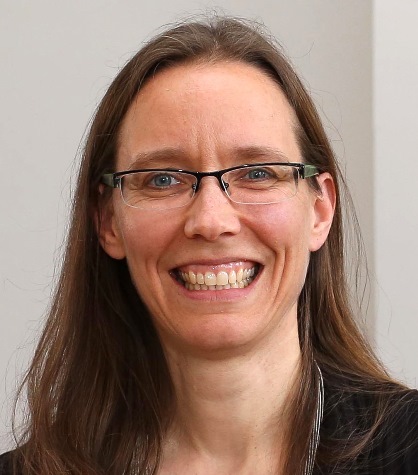Shannon Chance Ph.D. '10
Names a Marie Curie International Incoming Fellow
 Dr. Shannon Chance, an adjunct associate professor in William and Mary’s School of Education and 2010 graduate of its Educational Policy, Planning and Leadership (EPPL) program, recently began a two-year Marie Curie Research Fellowship based at the Dublin Institute of Technology (DIT) in Dublin, Ireland.
Dr. Shannon Chance, an adjunct associate professor in William and Mary’s School of Education and 2010 graduate of its Educational Policy, Planning and Leadership (EPPL) program, recently began a two-year Marie Curie Research Fellowship based at the Dublin Institute of Technology (DIT) in Dublin, Ireland.
As a Marie Curie International Incoming Fellow (IIF), Shannon will extend research she conducted as the 2012-13 Fulbright Scholar in Engineering Education at DIT. Her major IIF projects will include research publications about women in engineering, development of a master’s degree curriculum in engineering education, and robot-building workshops to provide teens with hands-on experience in engineering. Her work in these projects will be supported by Dr. Brian Bowe, Head of Learning Development for DIT’s College of Engineering and the Built Environment, and other faculty members interested in research about engineering, technology, and design education.
Marie Curie Actions promote research careers in Europe through a number of funding schemes managed by the European Commission's Research Executive Agency. In total, Marie Curie Actions are supported by € 4.7 billion in EU funds, as part of the 7th Framework Programme for Research and Technological Development (FP7), the EU's main research funding package for 2007-2013 worth a total of € 50 billion.
The Marie Curie Actions under FP7 have supported 60,000 researchers of nearly 130 different nationalities. More than half of the research supported through the programme is dedicated to societal challenges such as health, climate change and energy scarcity. Thirty-eight percent of the funded researchers are women and SMEs account for more than half of all businesses participating in the projects.
These grants, named after the double Nobel Prize winning Polish-French scientist Marie Skłodowska-Curie (famed for her work on radioactivity) support researchers at all stages of their careers, irrespective of nationality. Researchers who work across all disciplines—from life-saving healthcare to 'blue-sky' science—are eligible for funding. A new generation of Marie Skłodowska-Curie actions is being offered under the European Union’s Horizon 2020 programme.
In addition to gaining generous research funding, scientists and researchers also have the possibility to gain experience abroad and in the private sector, and to complete their training with competences or disciplines useful for their careers. One of its many programs, for instance, supports industrial doctorates, which allows individuals to combine academic research study with work in companies and to access other innovative training.
For Dr. Chance, this IIF grant provides the opportunity to develop new research skills and to contribute perspectives from US higher education to help enhance educational practice in Ireland and other EU countries. She will also have the opportunity to work with incoming Fulbright Scholars to Ireland who are conducting educational research.
Dr. Chance was recently promoted to the rank of full professor at Hampton University, where she has been a member of the School of Engineering and Technology for the past 15 years. Shannon hopes that this IIF will help strengthen ties between Hampton University, the College of William and Mary, and institutions in the EU.